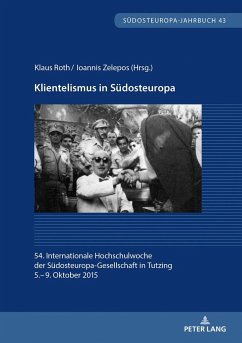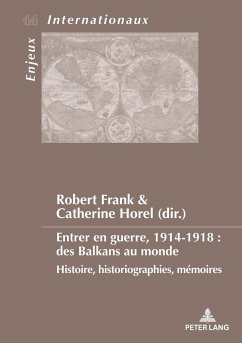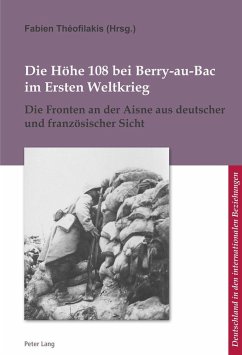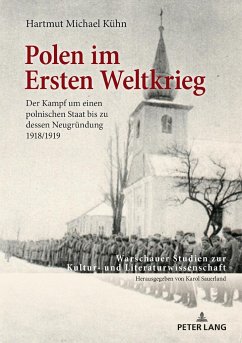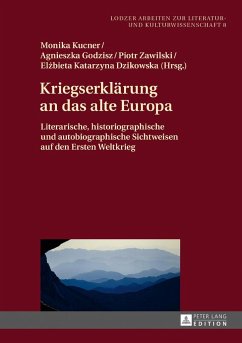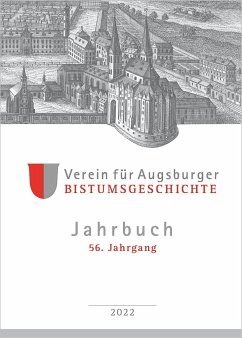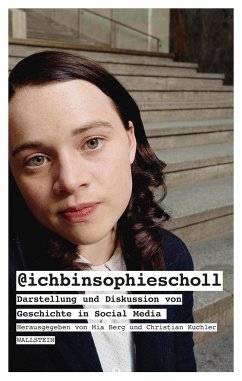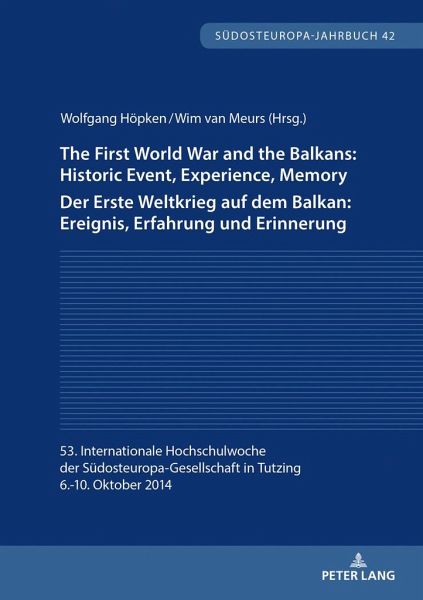
The First World War and the Balkans: Historic Event, Experience, Memory Der Erste Weltkrieg auf dem Balkan: Ereignis, Erfahrung und Erinnerung
53. Internationale Hochschulwoche der Südosteuropa-Gesellschaft in Tutzing 6.-10. Oktober 2014
Herausgegeben: Höpken, Wolfgang; van Meurs, Wim
Versandkostenfrei!
Versandfertig in 6-10 Tagen
76,30 €
inkl. MwSt.

PAYBACK Punkte
0 °P sammeln!
The centenary of the "Great War" not only inspired the memory on this "great seminal catastrophe of this century", but has also reopened the question of its interpretation and description. Within these discussions the Balkans have also gained an increased importance. Following the concept of a "modern" military-history, the volume puts the "event, experiences and memory" at its center and thus seeks to integrate South-Eastern Europe more into the comparative picture of the "Great War".Die 100-jährige Wiederkehr des Ersten Weltkriegs hat nicht nur die Erinnerung an diese "Urkatastrophe" des 20...
The centenary of the "Great War" not only inspired the memory on this "great seminal catastrophe of this century", but has also reopened the question of its interpretation and description. Within these discussions the Balkans have also gained an increased importance. Following the concept of a "modern" military-history, the volume puts the "event, experiences and memory" at its center and thus seeks to integrate South-Eastern Europe more into the comparative picture of the "Great War".
Die 100-jährige Wiederkehr des Ersten Weltkriegs hat nicht nur die Erinnerung an diese "Urkatastrophe" des 20. Jahrhunderts beflügelt, sondern auch scheinbar ausdiskutierte Fragen seiner Beschreibung und Deutung neuerlich belebt. Dabei hat mit dem Balkan auch derjenige Raum an Bedeutung gewonnen, von dem der Krieg seinen Ausgangspunkt genommen hat. Der Band beleuchtet "Ereignis, Erfahrung und Erinnerung" an den Krieg der Jahre 1914 bis 1918 auf dem Balkan und trägt damit zu einernoch stärkeren Integration Südosteuropas in das Bild des "Großen Krieges" bei.
Die 100-jährige Wiederkehr des Ersten Weltkriegs hat nicht nur die Erinnerung an diese "Urkatastrophe" des 20. Jahrhunderts beflügelt, sondern auch scheinbar ausdiskutierte Fragen seiner Beschreibung und Deutung neuerlich belebt. Dabei hat mit dem Balkan auch derjenige Raum an Bedeutung gewonnen, von dem der Krieg seinen Ausgangspunkt genommen hat. Der Band beleuchtet "Ereignis, Erfahrung und Erinnerung" an den Krieg der Jahre 1914 bis 1918 auf dem Balkan und trägt damit zu einernoch stärkeren Integration Südosteuropas in das Bild des "Großen Krieges" bei.





